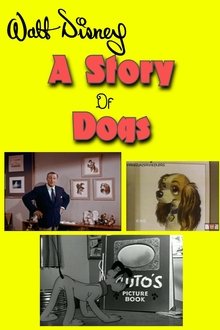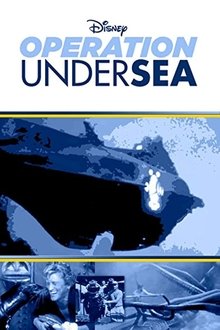Exploring the transformative impact of artificial intelligence in an industry of imagination, “ARTIFICIAL: Media Production in an Age of AI” delves into how AI tools are currently revolutionizing various stages of media production and examines the balance between technological advancement and human creativity, attempting to spark conversation about the future of storytelling in an age of progress. It also addresses the possibility of government regulation and the broader ethical concerns implicit in the immense capabilities of AI technology. The documentary integrates extensive research, survey results, and insightful interviews with industry professionals.
Related Movies
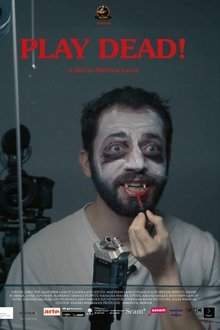
Play Dead! (2023)
If there is one person Matthew Lancit can’t get out of his mind, it is his uncle Harvey. Dark rings around his eyes, pale, blind, his legs amputated. Like Harvey, the filmmaker also suffers from diabetes. He has the disease under control, but one question is always nagging at him: How much longer? His long-term (self-)observation reliably revolves around fears of infirmity and mutilation. He translates the feared body horror into film, stages himself as a zombie, vampire, a desolate figure. Lancit playfully anticipates his potential decline, serving up a whole arsenal of effects which – as video recordings prove – go back to his youth. It is not for nothing that the “dead” in the title is also reminiscent of “dad.” Because “Play Dead!” also negotiates his own role as a father.

Cecilia Bartoli & Friends (2019)
Portrait of an exceptional musical talent and one of opera’s biggest stars, mezzo-soprano Cecilia Bartoli. With interviews from her illustrious friends and colleagues from the world of classical music: Daniel Barenboim, Antonio Pappano, Gustavo Dudamel and more.
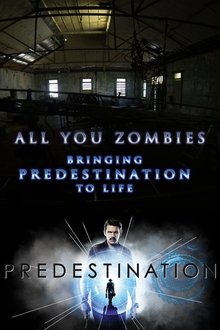
All You Zombies: Bringing 'Predestination' to Life (2015)
Documentary about the making of the Spierig Brothers' 2014 film PREDESTINATION that is based on Robert A. Heinlein's 1959 science-fiction short story '—All You Zombies—'. Through interviews with cast and crew, film clips and behind-the-scenes footage, this documentary thoroughly explores how the film came to be from casting to pre-production to principal photography to post-production. Interviewees include writers/directors Michael and Peter Spierig, producers Paddy McDonald and Tim McGahan, director of photography Ben Nott, special makeup effects designer Steve Boyle, production designer Matthew Putland, special makeup effects supervisor Samantha Lyttle, costume designer Wendy Cork, film editor Matt Villa, and actors Sarah Snook, Noah Taylor and Ethan Hawke.
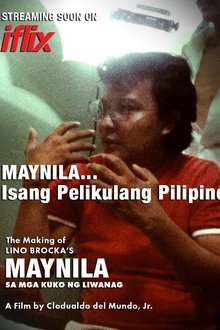
Manila... A Filipino Film (1975)
Making-of documentary about Lino Brocka's 1975 film "Manila in the Claws of Light," featuring interviews and behind-the-scenes footage.
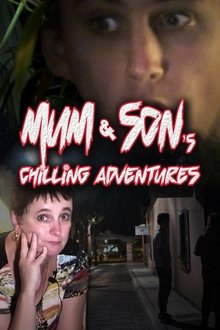
Mum and Son's Chilling Adventures (2019)
Mum and Son's Chilling Adventures is a documentary film that features the unique relationship of a mother and son ghost hunting team that investigates ghostly phenomenon.
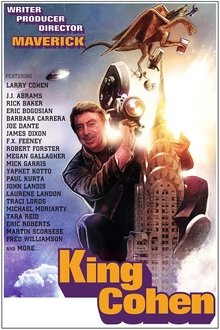
King Cohen: The Wild World of Filmmaker Larry Cohen (2018)
A feature-length documentary focusing on the acclaimed work and eclectic career of maverick filmmaker Larry Cohen, writer-director of "Black Caesar," "It's Alive," "God Told Me To," "Q," "The Stuff," and many more.
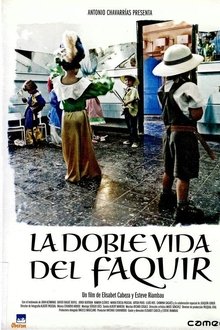
La doble vida del faquir (2005)
La doble vida del faquir (The magicians) returns to the scene of a school in the Catalan town of Sant Julià de Vilatorta where, in 1937, in the midst of civil war, a film-maker in hiding and a group of orphaned children dressed up as sultans and explorers shot an exotic adventure film. The films protagonists relive those childhood days when they were able to switch their school smocks for oriental turbans, while reality imposed its own fancy dress ball with military uniforms and priests dressed in civilian garb.
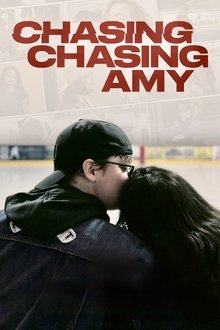
Chasing Chasing Amy (2023)
CHASING CHASING AMY explores the transformational impact of a ‘90s rom-com on a 12 year old kid from Kansas, coming of age and contending with queer identity. For young Sav Rodgers, the Kevin Smith cult classic, CHASING AMY, became a life raft. As Rodgers examines the film and its making as a cornerstone of LGBTQ+ cinema, he finds himself at a complicated crossroads.
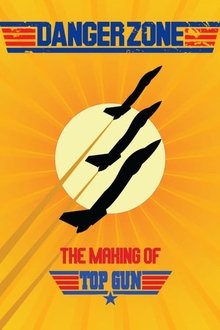
Danger Zone: The Making of Top Gun (2004)
A comprehensive 6-part documentary on the making of "Top Gun" featuring all-new interviews with the cast and crew. Available on Disc 2 of the "Top Gun" 2-Disc Special Collector's Edition DVD.
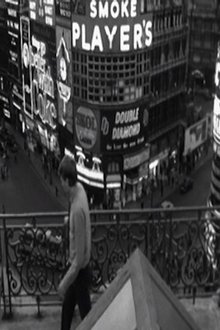
Never a Backward Step (1966)
This feature documentary is a profile of Canadian press tycoon Roy Thomson, whose single-minded attention to business brought him riches, power, and even a baronetcy in England. A native of Timmins, Ontario, Thomson had a tremendous career as publisher, television magnate, financier, and owner of many newspapers, including leading London dailies. The film is a frank study of an equally frank man.
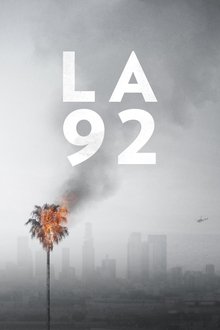
LA 92 (2017)
Twenty-five years after the verdict in the Rodney King trial sparked several days of protests, violence and looting in Los Angeles, LA 92 immerses viewers in that tumultuous period through stunning and rarely seen archival footage.
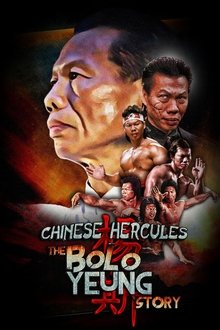
Chinese Hercules: The Bolo Yeung Story (NaN)
This is the story of the bodybuilder, Martial Artist and actor who wrote his own destiny and walked his own path. A legendary tale that's never been told on-screen before.
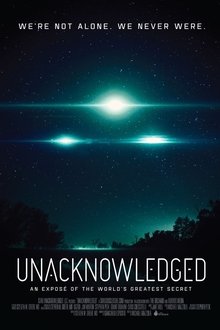
Unacknowledged (2017)
Dr. Steven Greer presents brand new top-secret evidence supporting extraterrestrial contact, including witness testimony, classified documents, and UFO footage, while also exploring the consequences of ruthlessly enforcing such secrecy.
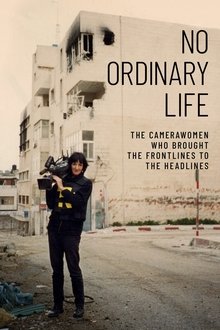
No Ordinary Life (2021)
In a field dominated by men, five pioneering camerawomen Mary Rogers, Cynde Strand, Jane Evans, Maria Fleet and Margaret Moth went to the frontlines of wars, revolutions and disasters to bring us the truth. As colorful as accomplished, these brave photojournalists made their mark by capturing some of the most iconic images from Tiananmen Square, to conflicts in Sarajevo, Iraq, Somalia and the Arab Spring uprising. But the world doesn’t know it was these women behind the camera. In the midst of unfolding chaos, the pictures they took for CNN both shocked and informed the world. This feature documentary by director Heather O’Neill tells their remarkable story.
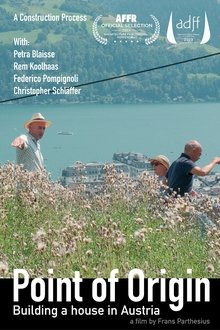
Point of Origin - Building a house in Austria (2023)
An international tech entrepreneur with a fondness for architecture asks Rem Koolhaas to build a house on an impossibly small piece of mountainside in Zell am See in Austria. The architect of the celebrated book S,M,L,XL seizes the challenge: how to draw light into a house less than four metres wide that is mostly underground? Photographer and filmmaker Frans Parthesius followed the building process and offers insight into Koolhaas’s way of working and the special relationship with his client.

Primary (1960)
Primary is a documentary film about the primary elections between John F. Kennedy and Hubert Humphrey in 1960. Primary is the first documentary to use light equipment in order to follow their subjects in a more intimate filmmaking style. This unconventional way of filming created a new look for documentary films where the camera’s lens was right in the middle of what ever drama was occurring. Preserved by the Academy Film Archive in partnership with The Film Foundation in 1998.
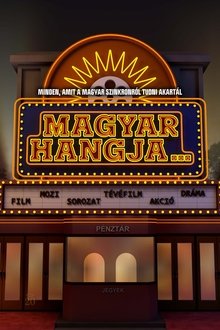
Magyar hangja… (2022)
The Art of Dubbing…, a documentary about Hungarian dubbing, was made with the participation of dozens of well-known actors and professionals working in the field. The documentary is a fitting tribute to the legendary Hungarian dubbing actors and actresses and the dubbing profession. The film also talks about the origins, golden age, present and possible future of Hungarian dubbing.
